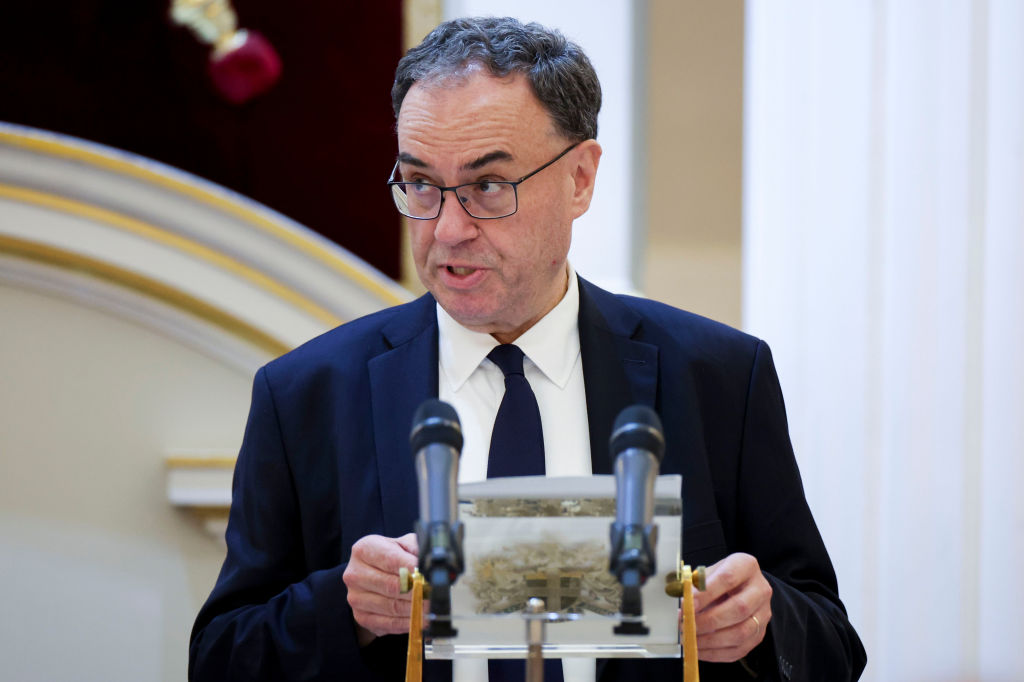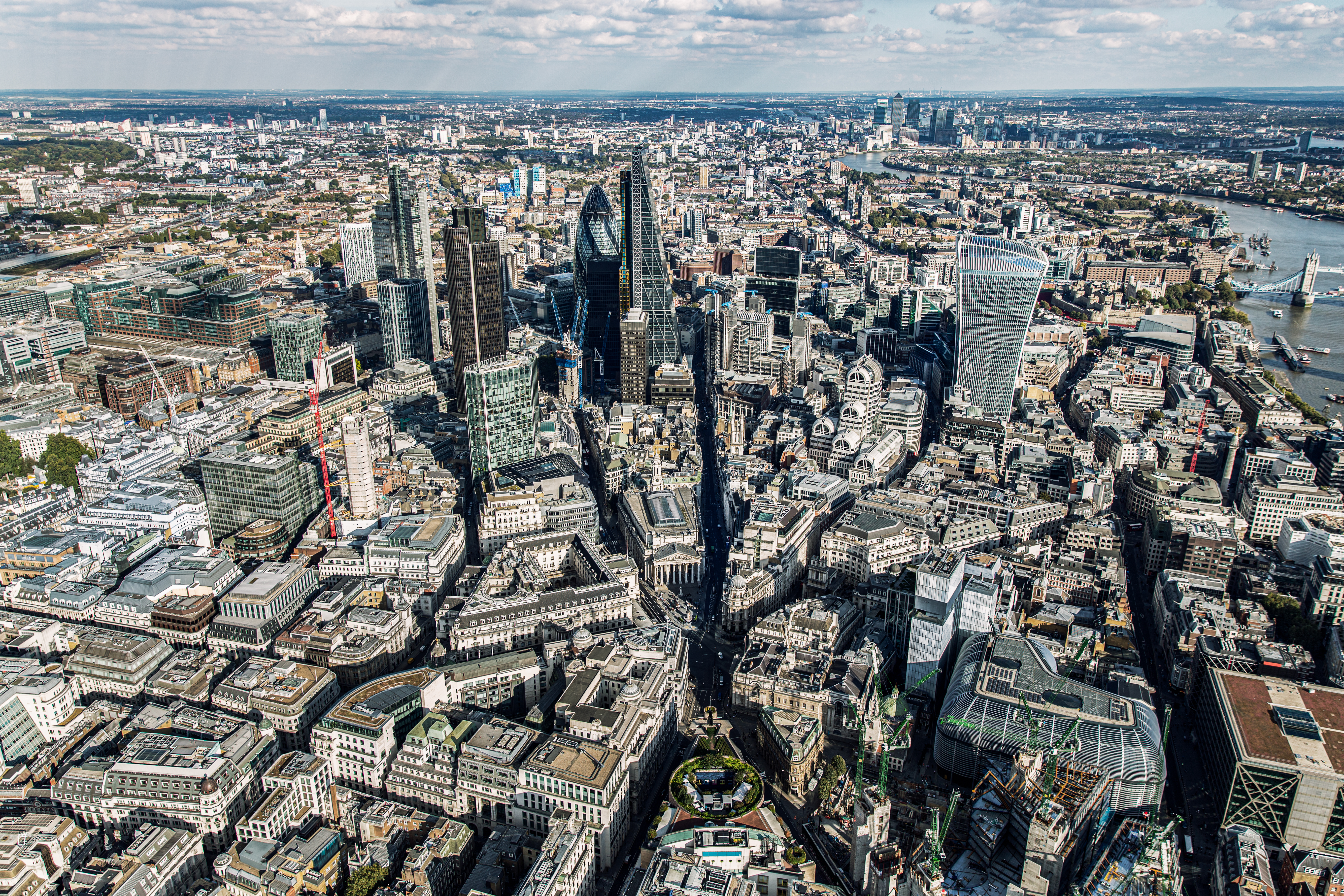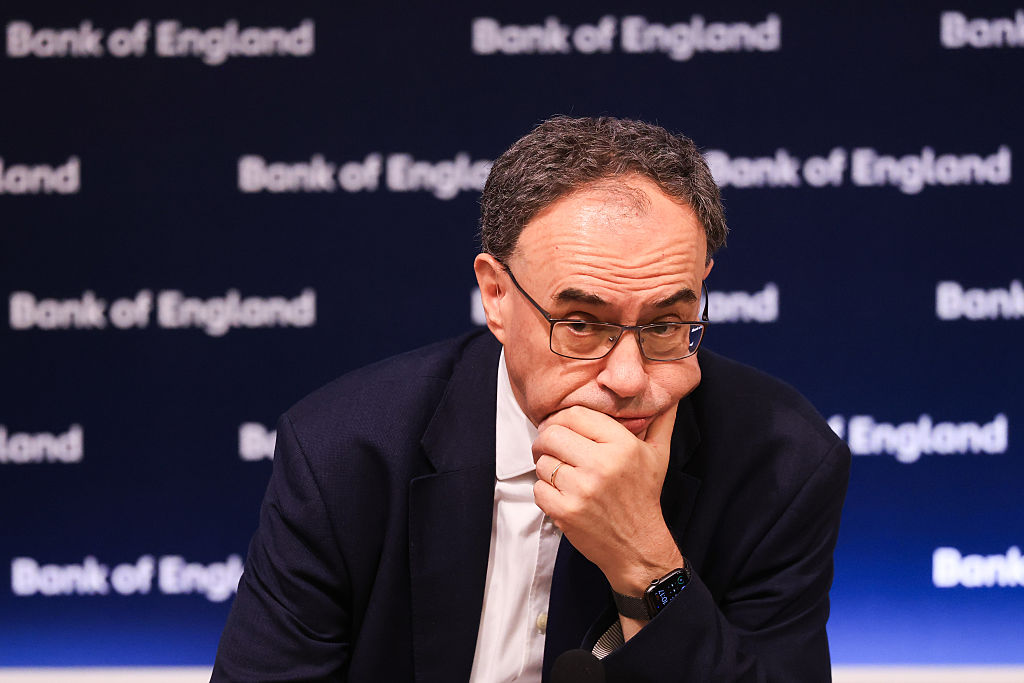UK economy stalls in the final quarter of 2022 but avoids recession
The latest data from the Office for National Statistics showed GDP fell 0.5% in December but remained flat in the final quarter of the year.


Get the latest financial news, insights and expert analysis from our award-winning MoneyWeek team, to help you understand what really matters when it comes to your finances.
You are now subscribed
Your newsletter sign-up was successful
Want to add more newsletters?
The UK economy narrowly avoided a recession in 2022 despite a 0.5% fall in gross domestic product (GDP) in the final month of the year.
The latest data from the Office for National Statistics (ONS) showed GDP was flat in the three months to December 2022, while annual GDP output is estimated to have grown by 4.1% in 2022. GDP fell by 0.2% in the three months to the end of September.
“While the 0.5% decline in output in December is far from ideal, the positive news to hang onto lies in the flat quarterly figure, which confirms that the UK has narrowly avoided falling into recession – technically defined by two consecutive quarters of negative growth,” says Alice Haine, personal finance analyst at BestInvest.
Try 6 free issues of MoneyWeek today
Get unparalleled financial insight, analysis and expert opinion you can profit from.

Sign up to Money Morning
Don't miss the latest investment and personal finances news, market analysis, plus money-saving tips with our free twice-daily newsletter
Don't miss the latest investment and personal finances news, market analysis, plus money-saving tips with our free twice-daily newsletter
“This comes despite the volley of blows battering the economy in the final three months of 2022 – from high inflation and borrowing costs to falling real incomes and persistent industrial action.”
Is the UK heading for a recession?
While these figures show the UK narrowly avoided a recession in 2022, there could be further pain ahead for the economy in 2023.
The Bank of England’s (BoE) latest forecast suggests the UK will enter a recession in 2023, but predicts it will be shorter and less severe than previously thought.
However, earlier this week the National Institute for Economic and Social Research (NIESR) said the UK is likely to avoid a recession, but called for more help for households in the upcoming March budget.
Strikes hurt growth in the final months of last year.
The services sector fell by 0.8% in December 2022 and was the main driver of the fall in GDP, the ONS said. The largest driver of the fall in the services sector was human health and social work activities, due to fewer GP appointments and operations partly due to strike action.
Education, arts, entertainment and recreation also saw steep falls. There was a fall of 17% in sports activities and amusement and recreation activities in the final month of the year as the Premier League delayed fixtures until after the World Cup. The production sector saw growth of 0.3%.
What’s next for the UK economy?
The UK is still widely expected to fall into a recession this year, and the International Monetary Fund expects it to be the only G7 economy not to grow this year. Instead, it’s forecasting a 0.6% contraction in 2023.
Rising interest rates are largely behind the economic slowdown. Last week the BoE raised rates by 0.5% to 4% – their highest level in 2008 – as it tries to bring the rate of inflation down to its 2% target. It’s currently running at 10.5%.
Rising interest rates encourage saving and discourage spending. They also increase the cost of borrowing, making it less attractive for businesses and consumers to borrow to spend.
Their impact has been felt in the property market, which has been on a downward trend since the end of 2022. The latest figures from the Royal Institute of Chartered Surveyors showed UK buyer demand is at its weakest since 2009.
Higher borrowing costs mean higher mortgage rates, which have turned property buyers off the market.
Additionally, energy prices are due to remain high, going up by 20% in April when the new Energy Price Guarantee comes into place. All of these factors are discouraging households from spending, and mean finances are likely to remain tight in the year ahead.
Still, both inflation and interest rates are expected to ease towards the end of the year, and forecasts are beginning to reflect this improving outlook.
“Higher mortgage rates won’t last forever,” adds Susannah Streeter, head of money and markets at Hargreaves Lansdown. “For homeowners, higher mortgage rates clearly bring huge challenges, and those with larger mortgages will feel the impact of rate rises magnified even further.
“However, for the millions on fixed rates that expire after the end of the year, there’s better news, because the base rate is expected to start falling, so the hit from remortgaging is likely to be smaller.”
“Inflation is inching down here in the UK and in other nations around the world, which have been sideswiped by punishing price spirals,” says Streeter. “There is also more confidence washing around, helped by the re-opening of China’s vast economy.
“This positive sentiment is helping the Footsie keep a spring in its step for now, as it hovers near fresh record highs, and could keep buoying the confidence of British consumers and companies in the months ahead.”
Get the latest financial news, insights and expert analysis from our award-winning MoneyWeek team, to help you understand what really matters when it comes to your finances.
Nic studied for a BA in journalism at Cardiff University, and has an MA in magazine journalism from City University. She has previously worked for MoneyWeek.
-
 Do you face ‘double whammy’ inheritance tax blow? How to lessen the impact
Do you face ‘double whammy’ inheritance tax blow? How to lessen the impactFrozen tax thresholds and pensions falling within the scope of inheritance tax will drag thousands more estates into losing their residence nil-rate band, analysis suggests
-
 Has the market misjudged Relx?
Has the market misjudged Relx?Relx shares fell on fears that AI was about to eat its lunch, but the firm remains well placed to thrive
-
 Why investors can no longer trust traditional statistical indicators
Why investors can no longer trust traditional statistical indicatorsOpinion The statistical indicators and data investors have relied on for decades are no longer fit for purpose. It's time to move on, says Helen Thomas
-
 Unemployment remains at five-year high as wage growth continues to slow
Unemployment remains at five-year high as wage growth continues to slowUnemployment in the UK held at 5.1% in the three months to November as wage growth fell again month-on-month.
-
 Is the Office for National Statistics fit for purpose?
Is the Office for National Statistics fit for purpose?Britain’s statistics authority, the Office for National Statistics, is increasingly unfit for purpose. Why, and what can be done?
-
 UK inflation forecast: where are prices heading next?
UK inflation forecast: where are prices heading next?UK inflation fell sharply in January. Is price growth expected to fall further in 2026, and when will inflation go back to the 2% target?
-
 Uncertainty ahead of the Budget causes house price growth to stall, says Rightmove
Uncertainty ahead of the Budget causes house price growth to stall, says RightmoveProperty website Rightmove says asking prices increased by just 0.3% in October, well below the 1.3% average for the month
-
 ONS: UK economy grew by ‘lacklustre’ 0.1% in final quarter of 2025
ONS: UK economy grew by ‘lacklustre’ 0.1% in final quarter of 2025The construction sector performed its worst in more than four years in the final quarter of 2025, the latest Office for National Statistics (ONS) GDP figures show
-
 UK inflation: What are the Consumer Price Index release dates?
UK inflation: What are the Consumer Price Index release dates?The UK’s inflation reports are published monthly. When do they come out and where are prices heading?
-
 When is the next Bank of England base rate meeting?
When is the next Bank of England base rate meeting?The Bank of England held interest rates at 3.75% in February 2026. When is the next Monetary Policy Committee meeting and will interest rates fall further this year?
